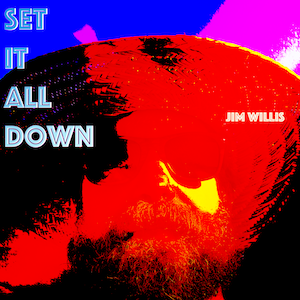I just rushed through this book. All the time I was reading it I thought to myself that I would be doing both myself and Chucky B a tremendous disservice if I didn’t go back and re-read it a second time and take some notes. I heard this line the other day,I hear and I forget. I see and I remember. I do and I understand.
That’s sort of the way I feel about taking notes on books nowadays. I read and I forget. I underline and I remember, I comment and note and I understand. So with the goal in mind of understanding perhaps a little bit better, I’m walking, not running, through the Intimate Journals a second time. The first thing that hit me about the journals was the introduction by WH Auden. He talks about Baudelaire’s attempt to reconcile the two types of individuality present in each of us; the individuality that is inherent in our human nature and the individuality aspired to by our human spirit. Meaning this: that each of us, by basis of our human nature, is an individual. We need do nothing to obtain this individuality, we are born with it and need only to live to hold onto it. But w/r/t the individuality that is the aspiration of our human spirit, Auden says that individual means to become what one wills, to have a self-determined history.
Perhaps we are born with this inclination, but we struggle our entire lives to manifest this type of individuality. Auden goes onto say that because each of us possess (or perhaps is possessed by both human nature and spirit), our lives are spent determining the relative importance of each and how to reconcile them. Baudelaire separates the hero ( the dandy, to use B’s anachronism) and the anti-hero as such
|
Hero | Anti-Hero |
|
Is a great man and saint for his own sake
Lives and sleeps in front of the mirror Is a man of leisure and general education Is rich and loves work Works in a disinterested manner Does nothing useful Is either a poet, priest or soldier Is solitary Is unhappy Has as many gloves as he has friends-for fear of the itch Is proud that he is less base than passers by Never speaks to the masses except to insult them Never touches a newspaper |
Natural-when they are hungry they want to eat Run away from home at twelve-not in search of heroic adventures, but to found a business Dream in there cradles that they sell themselves for millions Want, each of them, to be two people Believe in progress-that is, count on their neighbors to do their duties for them Are like Voltaire |
There appears at first to be a slew of contradictions. I thought there was until I read the journals and found that what attracts me to Baudelaire is that he is chock full of contradictions. For example, he was religious as all hell, but was also a fountain of such blasphemies as calling God the ultimate prostitute. But in a way his logic always works out at a level where you can see where he’s coming from. Auden concludes that Baudelaire’s idea of the hero is such that the hero must first have certain gifts of fortune (money, free-time, leisure) and must have the will to become what he aspires toward. The hero is neither a man of action nor a seeker of wisdom, wishes neither to be admired by man or to know God, but simple wishes to become subjectively conscious of being uniquely himself, and unlike anyone else. There is a lot of Baudelaire that I don’t agree with, a lot that must be swallowed with a grain of salt about the size of a Volkswagon– a lot that requires quite a bit of forgiveness and understanding on the part of the modern reader (though one gets the feeling that B would want nothing of the modern reader’s forgiveness or understanding). But what he’s ultimately saying is that the crowds, the masses, the general publics are all full of shit and amidst those crowds and masses the artist, the poet or the hero must constantly ask themselves:
What do I wish to become and how do I set about doing it?
What I think makes me feel particularly close to Baudelaire are his comments on acedia and the regret and despair he feels at his lack of motivation. One one day’s entry he makes promises to himself that he surely (as I do) plans on keeping, but then (like I do) writes the following day how he was incapable of keeping up with even the most basic discipline. This, coupled with the syphilis and the opium, is probably what leads him to madness. He writes on January 23, 1862:
I have cultivated my hysteria with delight and terror and today I have received a singular warning. I have felt the wind of the wind of madness pass over me.
He was a great admirer of E. A. Poe. I think he translated a bunch of Poe’s stuff into French. Regardless, the wind of the wing of madness must feel like Poe breathing down the back of his neck. Nonetheless, despite B’s inability to follow through on his observations and aspirations he remarks a lot about discipline that is worth noting:
The more one desires, the stronger one’s will. The more one works, the better one works and the more one wants to work. The more one produces, the more fecund one becomes. How many have been the presentiments and signs sent me already by God that it is high time to act, to consider the present moment as the most important of all moments and take for my everlasting delight my accustomed torment, that is to say, my work! We are weight down, every moment, by the conception and the sensation of Time. And there are but two means of escaping and forgetting this nightmare: Pleasure and work. Pleasure consumes us. Work strengthens us. Let us choose. The more we employ one of these means, the more the other will inspire us with repugnance. No task seems long but that which one dares not begin. It becomes a nightmare. He’s also making these lists throughout the journal. I think that one’s to-do lists tell a lot more about someone than photographs or biographies and the such. The following comes from one day’s list:
Do, every day, what duty and prudence dictate.
If you worked every day your life would be more supportable.
Work six days without relaxing.
Always be a poet, even in prose.
First make a start, then apply logic and analysis.
Every hypothesis demands a conclusion. To achieve a daily madness.
Here are some more remarks from his journals:
The habit of doing one’s duty drives out fear.
One must desire to dream and know how to dream,.
Immediate work, even when it is bad, is better than day-dreaming.
A succession of small acts of will achieves a large result.

